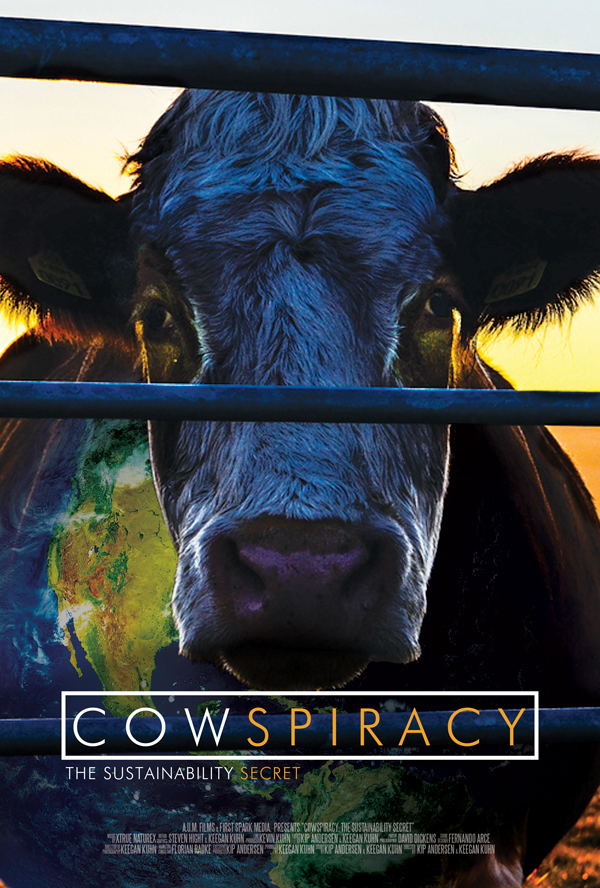Cowspiracy delivers the often silenced effects of animal agriculture
God knows documentaries can be patronizing. Sometimes it is the almighty narrator who knows all, other times it is the gruesome images that try to guilt you into becoming something you are not. Well, that is not the case of Cowspiracy, the first film by director duo Kip Andersen and Keegan Kuhn. In many ways, this documentary about the unsustainability of the current agricultural industry is very different from those said condescending documentaries seemingly made to make you feel stupid.
One of those key differences is the way the documentary feels personal and subjective in a positive way. The movie follows the thinking evolution of one of the directors, Kim Andersen. This shows his transformation into what we could call a “true” environmentalist. This is not as drastic as you may think. We are talking here of someone simply starting to change little habits, like taking shorter showers and using a bike instead of a car, to lower his carbon footprint. Then, he gets more and more interested in deeper environmental issues such as the effect of agriculture on the planet, and the odd fact that this problem is rarely addressed by any major environmentalist organization.
From there, he starts to investigate this incongruity by going up to worldwide organizations such as Greenpeace and Oceana, just to name a few. With him, you rapidly realize that there is something fishy about the fact that experts and huge pro-environment groups are simply looking the other way when questioned about the effect that animal agriculture has on the planet. It seemed much easier for them to pin Mother Earth’s health problems on cars and plastic bags than talking about one of the most unsustainable industries in humankind history. Just to give you an idea, a UN report cited in the movie states that animal agriculture causes about 18 per cent of greenhouse gas emissions, while all transportation only account for 13 per cent. From there, the narrator and main protagonist of the documentary go on to interview an array of interesting people connected to the issue.
Cowspiracy is not only talking about a major environmental problem, but also critiques the forefront organizations that are supposed to help spread awareness. It denounces the rarely mentioned reality of environmental organizations choosing which issues to address in relation with the risk it involves. In this case, the agriculture industry is described as a very aggressive group, to say the least. It gives to the documentary a more nuanced point of view of the situation. It is not only about the good guys fighting the bad guys. Everyone is in a greyish moral zone. The movie also uses comprehensive graphics and animations to demonstrate the numbers that the narrator is often sharing with the audience.
The movie also has its weaknesses. Obviously set up scenes with Kim Andersen bringing his Al Gore poster down to show that he has lost the respect that he had for what was his inspiration to become an environmentalist shows a certain immaturity on the part of the filmmakers. It also uses a few cheap cinematographic techniques to put a sense of tension not necessary to the movie. Still, the way Cowspiracy is looking at the importance of sustainability and one of its worst enemies makes this film different than most other documentaries of this kind.
More importantly, this is the only movie that sincerely makes me think about becoming vegan. I am a carnivore, but since Cowspiracy, I have become a very confused bacon lover. Watch this documentary, and you will understand. Cowspiracy will be shown during a Cinema Politica screening on Sept. 15 at 7 p.m. in the D.B. Clarke Theatre. For more information about the movie and future screenings, you can visit the movie’s official website: cowspiracy.com




